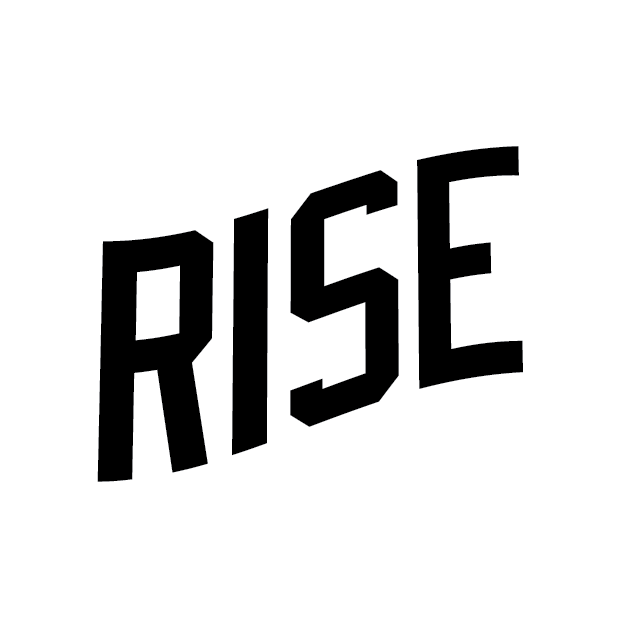I’m Still Me. Just Different.
Reentry is often described as a crisis—survival mode, constantly taking the next right step, grasping for help, and longing for someone to offer a glimmer of hope.
We wish people could look beyond a criminal record and see your skills and talents as worthy of a fruitful career.
“Being in the RISE Business Academy made me part of a group where we got to be each other's cheerleaders and we got to see each other succeed.” – Kelli
Kelli is a second‑cohort graduate of the RISE Business Academy, a reentry program that she discovered through a staff member at the Nebraska Department of Labor. “I didn't even know the Business Academy was a thing yet,” she recalls.
During her time inside the system, she lacked a substance‑use disorder and already had previous employment and a Bachelor's degree—yet these facts disqualified her from the reentry assistance program she wanted to join. On the outside, the resources she sought simply didn’t know how to navigate a person with a criminal background.[1] She was left to maneuver this new world of reentry alone.
“All I could do was what I knew how to do…and that was just to apply for jobs. In the first 18 months of my reentry, I applied for close to 200 jobs. I had about 40 interviews, was a finalist for 12, had eight offers, and all eight were rescinded due to my background.”
Even with a great education and extensive background in human resources and office management, Kelli took an assistant‑manager position at a local convenience store, only to be reminded of the retribution she would face if something was taken from the register. The blame would naturally fall on her because of her background—a looming fear.
Kelli always had business ideas and aspirations. After months of let‑downs and afflictions, learning about the RISE Business Academy gave her hope. She was finally able to create an opportunity for herself without the stress and anxiety of seeking employment from a company that wasn't background‑friendly.
“It took me about a month to get the courage to see if I would qualify for the Business Academy because I hadn't taken the RISE In‑Prison Program.”
Twelve weeks later, Kelli not only completed the RISE Business Academy but also placed fourth in her cohort's Business Pitch Competition, winning $500 in funding to launch Hope Virtual Service, LLC.
“The Business Academy opened a door, gave me a path and helped me overcome my obstacles along the way. Either someone helped pave the way or gave me the courage to step through it.”
When you’re starting a business—or even just thinking about it—it’s really lonely. Your family and friends might be cheerleaders, but they’re also worried. They fear what will happen if you take that step and what if you fail. They see the negatives of starting a new venture—even if they love and support you, they’re still worried. They’ve already seen you fail magnificently.
Being in the Business Academy made me part of a group where we were each other's cheerleaders and we saw each other succeed. Not just the other participants, but the staff at RISE. They increased my bubble. I know I have a place to ask questions and get honest answers. They’re not going to give me misinformation; they’ll encourage me on my toughest days. They’re helping me realize the relationships I’m building might not be for right now.
“They might be for next month…six months from now…maybe even next year. But I know this is where my growth is going to come.”
Kelli is now hoping the part‑time jobs she applies for can bring enough income to start building her business.
“The Business Academy created the opportunity for me to do this. Before the Business Academy, I didn’t have a path. I didn’t have funding. I didn’t have a sense of community that could help me take one cohesive idea and put it to paper.”
Having direction and lessons each week gave her a chance to focus on each part of her business in a smaller picture. When you just go off and start a business, you often don’t have the time to sit and think about all the different puzzle pieces you have to put together.
The speakers were so helpful. It was the first time I didn’t feel judged. They all knew why we were there, but they were still encouraging us. From a colleague’s perspective, you could see them in public and they’d still be respectful. They have a genuine interest in your success.
Her biggest takeaway? Having a sense of community. Feeling accepted. Having hope.
“I was ostracized from my old circles…when they see me now, they feel uncomfortable, like I’m somehow damaged, but I’m not. I’m still me. I’m just different.”
Kelli’s journey illustrates the power of a reentry program that combines education in prison, post‑release rehab, life skills, employment and housing support with a strong family & community support network. It also highlights the need for prisoner advocacy and prison reform to make reentry smoother for everyone.
Local organizations such as the Reentry Alliance of Nebraska are actively building community support networks and job‑placement programs that complement RISE’s services.[2]
The Sentencing Project’s research library provides in‑depth reports on collateral consequences and policy reforms that help shape more equitable re‑entry systems.[3]
